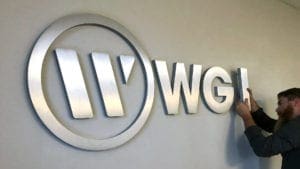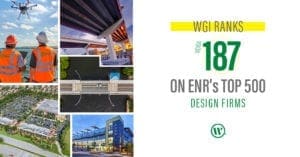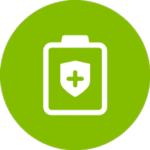
A New Look for the New Year
We’re refreshing our brand to reflect the energy, inspiration, and excitement that we feel when we come to work every day.
Learn from award-winning professionals — explore our whitepapers, blogs, and the latest industry updates.
Join our dynamic organization of engineers, land surveyors, landscape architects, environmental scientists, and architects!
Talk to a market leader today! We’ll answer any questions you have about our professional services.

by Mike Oler, P.E.
As we start to entertain the possibilities of reengaging in social activities, we should take the lessons learned from a life in quarantine and apply them to the future ahead. How do we assess these events, understand the challenges we faced, and properly dissect their value? We cannot expend blanket platitudes like, “it is only a failure if you did not learn from the experience” without the follow-through. By no means are we of the mindset this is over, but you must crawl to walk, and walk to run. As John Maxwell would say, “prepare today so you do not repair tomorrow”. Here is a brief exposé into the lessons our structural team learned while navigating a life in quarantine.
Recently we embarked on an exploratory mission with our partners at Guide Architecture to determine a solution to the growing COVID-19 crisis relative to hospital care and capacity. As usual when we solved one problem, we found two more. The crux was a paradoxical perspective – how do you design for a pandemic in a pandemic? The needs, the information, the opinions, the protocols change hourly.

It wasn’t until we removed ourselves from the crisis to see how the short-term could improve the long-term and vice-versa. From here, our focus shifted to attacking the need first, and then adjusting based on important life-of-service elements later. Guide designed a system that was flexible depending end-user needs and funding.
Leadership thrives in a crisis. In these times, people look to leadership to provide clarity and direction. They need someone to collect the broken pieces, look through the calamity, and find opportunity. With our newfound perspective of operating in a global pandemic, we understand that life afterwards will be a new normal. Here are our team’s clear takeaways of our new normal:
When it comes to your people, a crisis will test the boundaries of your trust. If you have cultivated an environment of mutual trust, commitment to excellence, diligent communication, and delivering a quality product, you don’t have to worry about where your team works or how they work. We were pleased, though not surprised, to see that our work carried on largely uninterrupted. If anything, we have greater camaraderie than before, especially with our team members in different offices.

Daily video calls have helped to keep us focused while giving personal connection and comic relief to our cohorts. They always started with the same question, “how are you and how is your family today?” If we develop this trust outside the context of a crisis, we will have a smooth and productive transition into a crisis. This trust starts with equipping and encouraging your team. This leads to empowerment which will generate confidence and respect. These are all important elements to developing well established trust.
“For a team to be successful you must be nimble and adaptive. If you resist you will get left behind.”
The motto of our team is “the only thing consistent is change” and we realize that the nature of this profession lives and dies on agility. For a team to be successful you must be nimble and adaptive. If you resist you will get left behind. A global crisis is not immune to this. You cannot simply go back to your normal way of doing things with the perspective of this experience in hand. Like 9/11, The Fukushima Disaster or The Great Recession, a global pandemic will change you. Are you going to listen, learn and apply?

WGI is a national design and professional services firm leading in technology-based solutions for the construction of public infrastructure and real estate development. At WGI, we’re providing Tomorrow’s Infrastructure Solutions Today.

We’re refreshing our brand to reflect the energy, inspiration, and excitement that we feel when we come to work every day.

Join WGI’s Arnaud Thibonnier, P.E., S.E., Director, Structural Engineering, for an in-depth introduction to the unique considerations of “high-rise” structural design.

For developers and designers, now might be the right time to consider using mass timber on your next project. Our Structural Engineering team takes a look at the numbers.

WGI moves up 37 spots on Engineering News-Record (ENR)’s 2020 Top 500 Design Firms List.

As energy costs continue to rise, and as energy performance continues to be a priority for both owners and tenants, efficiency is a competitive advantage.

Here is a quick reference guide of commonly used terms so next time your Structural Engineer drops one of them on you, you’ll be ready.
You’ve been searching for a place like WGI. We look forward to meeting you soon.
Sign up to receive emails to hear our latest news and achievements in our monthly newsletter.
Enter your zip code, and we’ll personalize your experience with local projects, office locations, team members, and more.
WGI supports its associates with meaningful opportunities for growth, strong benefits and perks, while we work collaboratively with clients and co-consultants to shape and improve communities.






WGI is a dynamic organization with opportunities nationwide for engineers, land surveyors, landscape architects, environmental scientists, and architects.